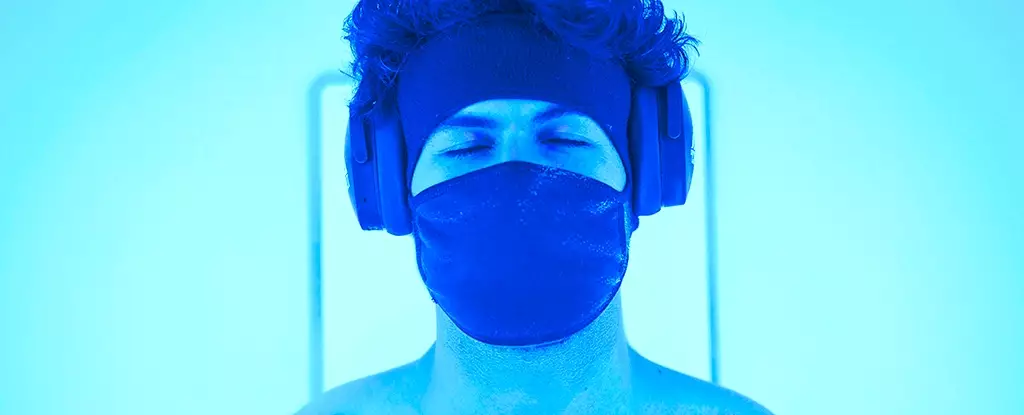In the quest for improved sleep quality, individuals often resort to common practices, such as optimizing their bedroom environment or adopting relaxation techniques. However, recent research from the University of Poitiers in France has introduced a groundbreaking concept: utilizing cryostimulation therapy to enhance sleep. This innovative method subjects participants to sub-zero temperatures, specifically -90 °C (-130 °F), for a brief five-minute session each day. The implications of this study are profound, suggesting that extreme cold exposure could lead to significant advancements in the treatment of sleep disorders and related health issues.
The study involved 20 healthy individuals, predominately young adults averaging 23 years of age, who underwent a regimen of cryostimulation over five consecutive days. Following their chilly daily sessions, participants were monitored overnight using advanced sensors to observe their brain and heart functions, which provided insights into their sleep cycles and quality. It was discovered that cryostimulation notably increased the duration of slow-wave sleep—a critical phase known for its restorative properties. Specifically, subjects experienced an average increase of 7.3 minutes in this essential sleep stage, which is instrumental for memory consolidation and overall cognitive function.
The findings revealed not just an enhancement in sleep quality but also notable improvements in participants’ mood and reductions in anxiety levels, with the benefits being especially pronounced among female participants. The research highlights a potential gender-based response to cold exposure, indicating that future studies should consider tailoring treatment protocols according to gender to optimize the benefits of cryostimulation.
Despite the promising results, the study’s design presents several limitations that warrant consideration. The sample size, consisting of only 20 participants, is relatively small and may not represent the wider population. Furthermore, the study did not explore other aspects of sleep, such as the speed at which participants fell asleep or the duration of REM sleep, which are equally vital for overall sleep health. The researchers did acknowledge the need for additional studies to unpack the underlying mechanisms linking cryostimulation and sleep improvement.
Moreover, certain control variables were applied during the study, such as participants abstaining from alcohol, caffeine, and exercise, which possibly influenced the results. Future research should investigate a broader range of lifestyles and potential confounding factors to determine the full scope of cryostimulation’s impact on sleep and health across diverse populations.
Cryotherapy is not a novel concept; its therapeutic use can be traced back to ancient civilizations, including Greece, where cold treatments were employed for various ailments. In contemporary times, whole-body cryostimulation has gained traction among athletes seeking to expedite recovery from strenuous activity, thanks to its anti-inflammatory effects. Now, emerging evidence suggests that these benefits could extend to enhancing sleep quality, illustrating how ancient practices can find new applications in modern health and wellness.
As society grapples with the growing challenges of sleep disorders, neurodegenerative diseases, and chronic inflammation, the insights provided by this research open new avenues for treatment. This exploration into cryostimulation therapy aligns with a broader movement in medicine toward holistic and non-invasive interventions that promote health through natural means.
As we look to the future of sleep research and treatment methodologies, cryostimulation stands out as a novel yet promising therapeutic approach. While further investigation is essential to substantiate these initial findings, the potential for using extreme cold as a means to bolster sleep quality and enhance mood presents exciting opportunities within the realm of sleep health. The fusion of ancient practices with modern science could pave the way for innovative treatments that address not just sleep disorders but also broader health concerns that plague our society today. Embracing such innovative therapies may well become a critical component in the pursuit of restorative sleep—a vital element for our overall well-being.


Leave a Reply